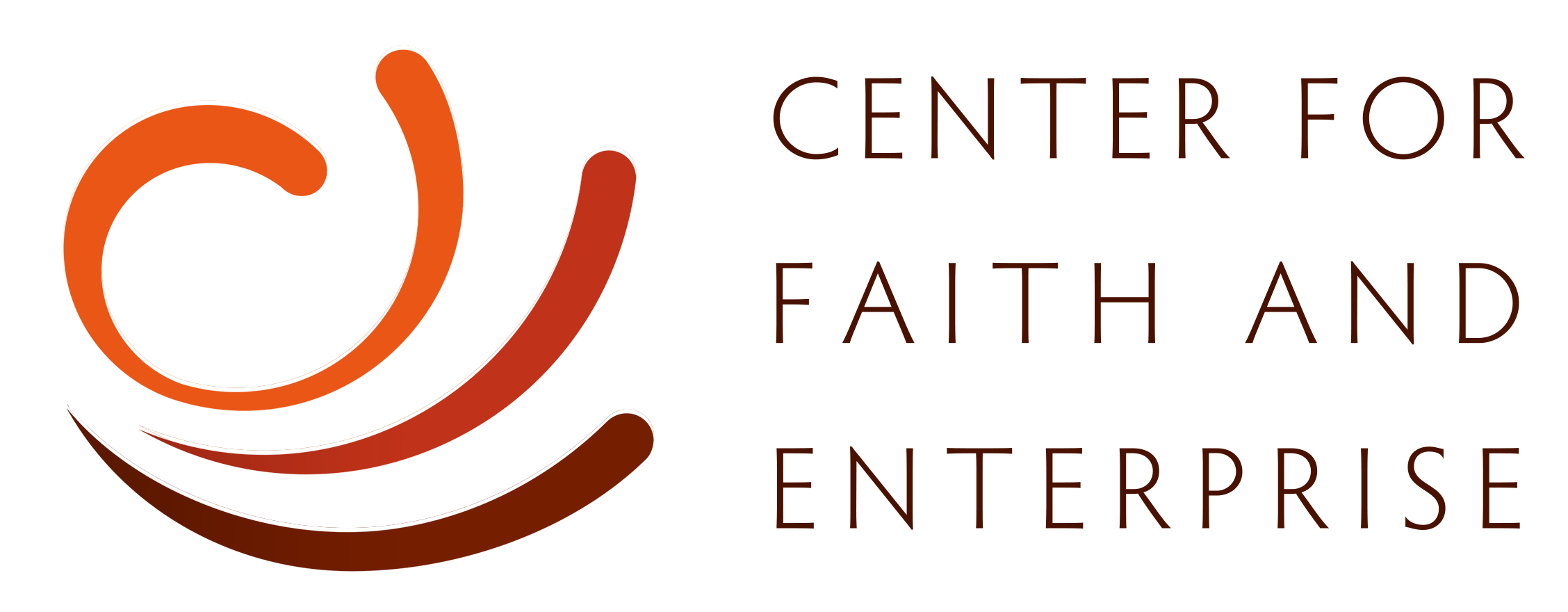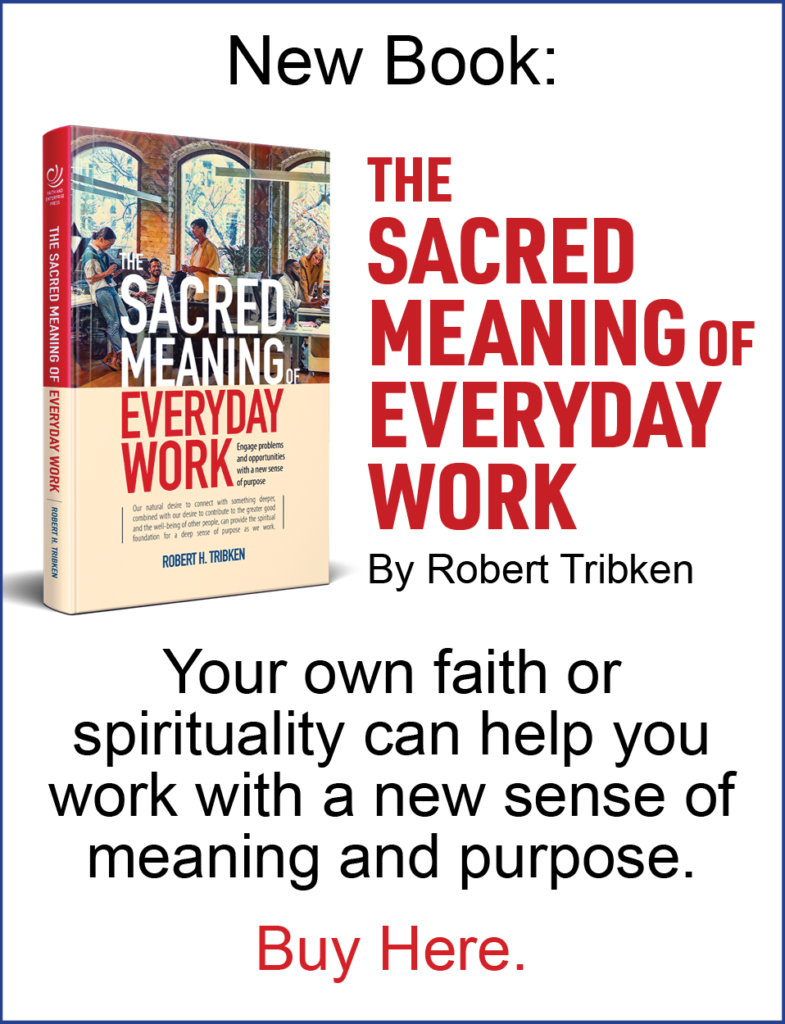
(Link to related podcast here)
After a prolonged struggle with King Ahab and the priests of Baal, the great prophet Elijah was completely exhausted. He journeyed by himself into the desert and asked God to take his life; he then lay down under a broom tree and fell asleep, awaiting death. Elijah’s friends and allies were gone; he had failed to save Israel and was too tired to go on.
But an angel sent by God awoke Elijah and gave him food and drink. After rest, the angel brought Elijah to Mount Horeb to meet God in a cave.
After experiencing a great wind, a powerful earthquake, and a fire, Elijah encountered sheer silence within which he heard the quiet voice of God sending him back out to fulfill his calling. And so, refreshed, Elijah returned with power to the world and fulfilled his calling from God. (Adapted from 1 Kings 19)
———————————————–
From our vantage point, it is not too hard to see Elijah as an extreme case of work-related burnout. He was exhausted, without friends, and felt like a failure. Maybe you have experienced something like this; I certainly have.
Burnout is a big problem; if we have not experienced it ourselves, we probably will in the future and, in any case, we probably know somebody who is confronting burnout right now.
What is Burnout?
Let’s begin by looking at what burnout is.
Psychologists Christina Maslach and Michael P. Leiter wrote an essential book on the subject called the Truth About Burnout: How Organizations Cause Personal Stress and What to do About It. They talk about burnout like this:
What might happen if you begin to burnout? Actually, three things happen: you become chronically exhausted, you become cynical and detached from your work, and you feel increasingly ineffective on the job.(1)
Following Maslach and Leiter, there seem to be three key characteristics:
- Chronic exhaustion is the primary characteristic. This is not just the sort of tiredness we feel after working hard and for long hours over an extended period of time. This is chronic exhaustion — it stays with us and always seems to be there. Our energy resources are depleted and we feel as though we don’t have the energy to get the work done.
- There can be what some people call depersonalization, or maybe cynicism. Our work no longer seems to have meaning for us. And this can apply to our working relationships as well; we can feel detached or disconnected from the people with whom we work.
- We feel ineffective and powerless, and this generally prevents us from experiencing a sense of accomplishment.
Burnout is, in many ways, the opposite of active engagement. Instead of feeling energetic, involved, and efficacious, we feel exhausted, uninvolved, and ineffective.
Causes of Burnout
Burnout results from severe and prolonged stress. The stress that leads to burnout usually results from the interaction between the individual and their work or between the individual and their working environment. The dynamics can be quite complex; different individuals react to different stressors differently.(2)
One way to think about burnout is as the result of a long-term mismatch between the individual and either their work or their work environment. This mismatch can take different forms:
- There can be a mismatch between the requirements of the job and the skills and resources brought to the job by the individual. In some cases, the individual might not have the skills necessary to do the work in a reasonably efficient and productive manner. Or, increasingly in today’s workplace, the individual might be overloaded — he or she might have more work than they can actually get done. In either case, the result can be a feeling of chronic overwork.
- The mismatch can involve our values. The work might seem to require the individual to do something that just does not sit well with them. Or it could be a situation where one feels like they are spending all of their time and energy on something that is quite different from what they believe is their true calling. This can lead the individual to ask the question “is this really what I am meant to do with my life?” and can be a very distressing situation.
- The mismatch can be interpersonal. For example, the individual might have trouble getting along with their boss or perhaps another coworker.
- A common form is when a person is working quite hard and believes they are performing well, but does not feel they are being compensated fairly, monetarily or in terms of respect and recognition. The feeling of being treated unfairly can be harmful, especially if it is allowed to continue over a significant period of time.
- A particularly troublesome situation can be one where the work puts high demands on the individual, but the individual is not given adequate control over how to meet these demands.
Each of these types of situations can create a great deal of stress that seems to grind us down over time until we burn out.
What Can be Done About Burnout?
Before proceeding, we should recognize that there might be situations in which there is very little we can do without changing jobs. And there are times when we need professional help (I am not qualified to provide such help nor to offer advice about when it might be appropriate). But there are still some common sense things we can consider.
A place to start is with organizational issues. Suppose we are in a position to make changes to the organization or perhaps to how the workflow is organized. In that case, we can try to take action to remove critical mismatches (Masloch and Leiter believe that organizational or management issues cause most work-related burnout). If someone is in a position of leadership in the organization, it is important to be alert to the mismatches that can lead others into burnout and to take whatever action is available to fix them. This can be very important in the lives of the people involved. It can also be essential for the effectiveness of the organization.
But what if one cannot change the organization or the objective nature of the work? What can we do as individuals?
First, it is important to strengthen our psychological and emotional resilience. Physical health is important; adequate exercise, proper food, and enough sleep can help keep our mental and physical energy up. Strong, supportive interpersonal relationships are also important, whether within the workplace or without. These can help us build resilience and buffer us from some of the emotional effects of stress.
Leisure time is especially important. Stepping away from our work and leaving our work identity behind allows us time to recover from workplace stress, rejuvenate, and reverse the depletion of our inner resources. There seems to be a natural inner healing that takes place when we allow ourselves to be absorbed by an interest or an activity different from our work. Even a few minutes of rest in the middle of the workday can be helpful, though we should not lose sight of the fact that we also need extended time away.
But while leisure is important, the truth is that the very times when we are most in need of recovery also tend to be when it is most difficult to avail ourselves of the benefits of leisure. This can be either because we do not feel we can afford to take time off work or because when we do take the time off, we are too busy ruminating about our work to enjoy the time away. This is something at which many of us have to work; we need recovery time, especially when we are facing burnout.
These points might sound obvious, and maybe they are, but we should keep in mind that when people are dealing with burnout, they are often in a sort of burnout-induced fog. They might be unable to see what would usually be the obvious opportunities for rejuvenation.
Our Faith or Spirituality Might Help
One key to our renewal might be found in the rich resources of our faith and spirituality.
Churches and other religious entities can provide a supportive community; strong personal relationships can help us build resilience and buffer some of the emotional effects of stress and burnout. Reading and reflecting on scripture and its connection with our daily life can help; not only does the Bible contain many examples of people who have faced difficult times and from whom we can draw lessons, but by its nature, it directs our attention towards the eternal, the transcendent, and this by itself can help us put our current challenges into proper perspective.
Most important, at least to my way of thinking, are the spiritual or contemplative practices such as prayer, some forms of worship, and meditation. There is something about turning our attention towards God in prayer that sometimes seems to connect us with something deeper than ourselves. Prayer can renew and energize us and help us develop a deeper sense of mission and purpose in our work. It can also help us stay calm in times of stress.
This seems to have been the case with Elijah. While the sleep and the food and drink provided by the angel certainly helped, the experience of connection with God, hearing the small voice in the sheer silence, was his true source of renewal and strength.
Hearing the voice of God in the silence reconnected the great Elijah to the source of all power, meaning, and love. It renewed him and sent him back into the world with the strength he needed to fulfill his calling. Perhaps the same can be true for us, too, if we pay attention.
This article was in part adopted from an earlier article on work-related burnout, and from the book The Sacred Meaning of Everyday Work (available from Amazon. See also the related podcast episode.
References:
[1] Christina Maslach, Michael P. Leiter. The Truth About Burnout: How Organizations Cause Personal Stress and What to Do About It. (San Francisco: Jossey-Bass, 1997) Kindle Edition. Location 234.
[2] For a discussion of the dynamics of stress, see: Richard S. Lazarus and Susan Folkman. Stress, Appraisal, and Coping. (New York: Springer, 1984).
[3] Robert J. Vallerand. The Psychology of Passion: A Dualistic Model. (New York: Oxford University Press, 2015). Page 63.

